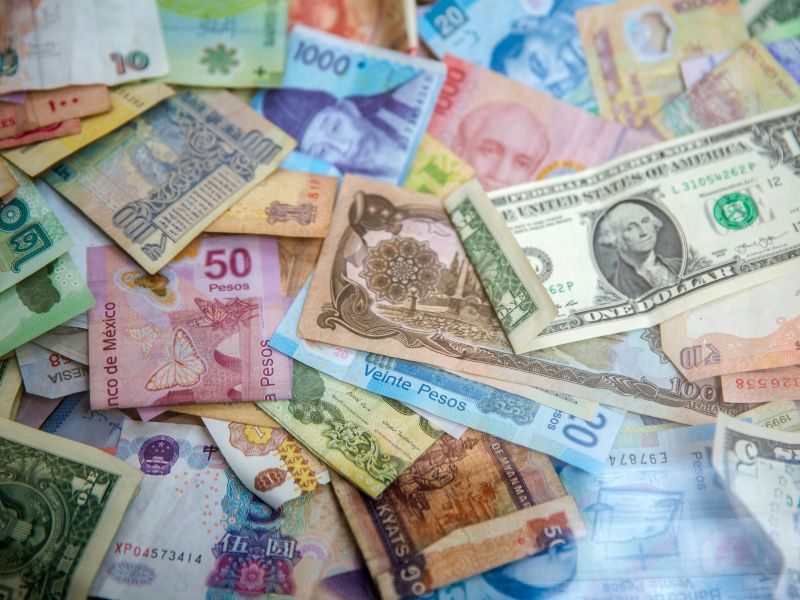The Foreign Exchange Transaction Form (FET) is a document that is issued by a Thai bank. It is issued when foreign currency is transferred from outside of Thailand into Thailand. For example, if a Malaysian were to transfer Malaysian Ringgit from his Malaysian bank account to a Thai bank, the Thai bank would receive the Malaysian Ringgit. The Thai bank will then convert the Malaysian Ringgit into Thai Baht in Thailand. It will then issue an FET.
The FET would bear the following information:
- The amount of foreign currency that the Thai bank received
- The amount of baht that the foreign currency is converted into
- The name of the sender of that foreign currency
- The name of the recipient of that foreign currency
- The purpose of the money transfer
The FET is a way to prove that foreign currency was brought into Thailand. Foreign purchasers of Thai properties require this FET to register their properties with the land department. If a foreign buyer of a Thai property does not have an FET, he or she cannot transfer the title of the Thai property to his or her name. An FET can only be issued if the monies are transferred from a foreign bank to a Thai bank. If a foreigner uses remittance services and the monies are not transferred through the international money system, then no FET can be issued. Therefore, it is imperative that the transfer of money has to be done through a foreign bank.
While many sources are stating that the sole reason for such an implementation is that Thailand wants to prevent money laundering, I find it difficult to accept this. To force the money to remain within the international money system, i.e. within banks, means that the money is traceable. However, when the money is received in Thailand, the Thai bank does not question the source of funds. So while the money received still has a trace, it does not make sense that a Malaysian cannot transfer Thai baht into Thailand and must instead transfer any currency other than Thai baht. I believe an additional, but less talked about reason for this rule, is that the Thai government wants to see foreign currency flowing into Thailand.
It is a little-known fact but Thailand has the second highest foreign exchange reserve in South East Asia. Singapore has the highest.

It has more foreign exchange reserves than countries like the UK, UAE, Indonesia, the Philippines, Malaysia, Vietnam, Qatar and Australia. A high foreign exchange reserve helps a country withstand external shocks to its financial system during financial crises.
This data should also be a good conclusive reason for investors of Thai property or Thai assets. It means that the Thai government has a strong arsenal to come to the Thai baht’s aid if there were a major financial crisis. It can use the foreign exchange reserve that it is sitting on to support the value of the Thai baht.
For foreign purchasers of Thai property, it is essential that they are aware of what information should be provided when making international money transfers towards the purchase of their Thai property. The purpose of the money transfer has to be clearly stated. The purpose should state the development that is being purchased as well as the unit number. For example, if a foreign purchaser from Malaysia were to purchase a unit at Shush Ratchathewi, the purchaser would state “For the purchase of Shush Ratchathewi, unit number 0801”. Of course, it would be essential to follow the description that is provided by the developer if the purchaser is purchasing from a developer. This is the reason why I usually encourage first-time purchasers of Thai properties to purchase from a reputable Thai developer with a good track record of selling to international clients. The information provided would be in English and a few other languages that the usual foreign purchasers would understand. The transfer would be made to the developer’s Thai bank account.
Some purchasers may have an existing Thai bank account. They may have previously purchased a Thai property or worked and resided in Thailand and thus they were allowed to open a Thai bank account. They may choose to transfer foreign currency into their own Thai bank account ahead of the developer calling for the funds. This is probably to take advantage of times when the Thai bath is low to lock in a favourable exchange rate. Such purchasers must speak directly to their Thai bank to ensure that they will be issued with the FET. Also, they need to ensure that the purpose of the money transfer is clearly stated. Therefore they will need to speak with the developer who they are purchasing from. The developer will usually be the one who is in charge of registering the purchaser’s name with the land department. For the record, I do not recommend that purchasers do this.
In conclusion, the FET is something that all foreign purchasers of Thai property will require. Therefore, it is important when foreigners purchase Thai properties, they engage professionals who can advise them appropriately. There is no requirement to hire a Thai lawyer to transfer the title of the property. The developer or your property agent can do the transfer for you. A Thai lawyer may still be engaged to do due diligence on the property. In my personal opinion, this is more applicable when purchasing from a small, lesser-known developer or when purchasing resale properties from individual owners.
Yours sincerely,
Daryl





